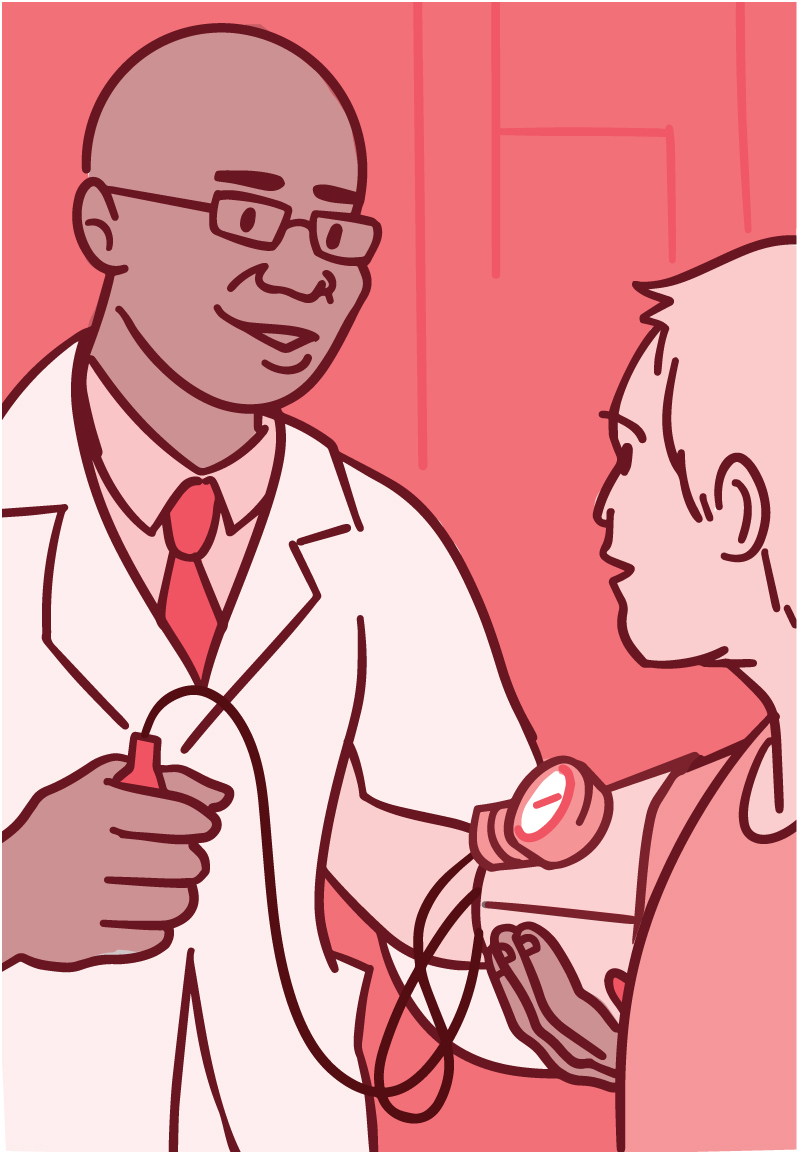An Ounce of Prevention
Pros and Cons of Disease Screenings

Lots of diseases start silently. Conditions like high blood pressure, high cholesterol, and even cancer may have no symptoms at the start. Screening refers to looking for signs of disease in seemingly healthy people. Finding problems early can help you start treatment and make helpful lifestyle changes as soon as possible. Some screening tests have been shown to improve health and are widely recommended.
“We have great screening tests that have really lowered our rates of death and disease,” says Bob McNellis, a public health expert at NIH. Teams of experts develop guidelines for who should be screened with these tests, and how often.
A new study looked at how screening contributed to help lower cancer deaths in the U.S. over the last five decades. “We found that 8 out of 10 cancer deaths averted over the last 45 years were due to prevention and screening efforts,” says Dr. Katrina Goddard, a cancer control expert at NIH. Screening was the main cause of the drop in deaths from cervical cancer and colorectal cancer.
But screenings don’t always make sense for everyone. Some tests may have potential downsides, or harms. “These could be physical harms. They can also be things like stigma or psychological stress,” McNellis explains. For example, a test may suggest that you have a disease when you actually don’t. This is called a false positive result and can lead to stress and unnecessary follow-up testing that may come with a risk of side effects. Other times, tests may miss cases of a disease. These are called false negative results.
Sometimes, a screening test finds a real disease that never would have caused issues over the person’s lifetime. But that person may receive treatment because of the test results. This is called overdiagnosis and overtreatment. “Basically, there are no perfect tests,” McNellis notes.
Experts continue to track the impact of screening tests over time and adjust recommendations. For example, screening tests for prostate cancer used to be common for older men. But studies found high levels of overdiagnosis. This led to many men having major surgery they didn’t need. So prostate cancer screening is not commonly recommended for men 70 and older.
“Screening guidelines do change over time,” Goddard explains. This happens because new research is always being done. For example, guidelines now suggest that many people start screening for colorectal cancer at age 45 instead of 50. Cancer rates have been rising in younger people, “and we have new evidence that they may benefit from colorectal cancer screening,” McNellis says.
Your doctor will take many factors into account when recommending screening tests. These include your age, overall health, and personal preferences. Talk with your doctor before having a screening test.
Questions to ask can include: What are the potential harms of the test? How often do they occur? What’s the chance of finding a disease that wouldn’t have caused a problem? How effective are the treatment options if you find something? Am I healthy enough to have treatment if you discover a disease?
Many screening tests need to be repeated regularly to get the most accurate results, McNellis says. So even if you’ve been given a clean bill of health, let your doctor know if you experience any worrisome symptoms in between tests.
NIH Office of Communications and Public Liaison
Health and Science Publications Branch
Building 31, Room 5B52
Bethesda, MD 20892-2094
Contact Us:
nihnewsinhealth@od.nih.gov
Phone: 301-451-8224
Share Our Materials: Reprint our articles and illustrations in your own publication. Our material is not copyrighted. Please acknowledge NIH News in Health as the source and send us a copy.
For more consumer health news and information, visit health.nih.gov.
For wellness toolkits, visit www.nih.gov/wellnesstoolkits.




